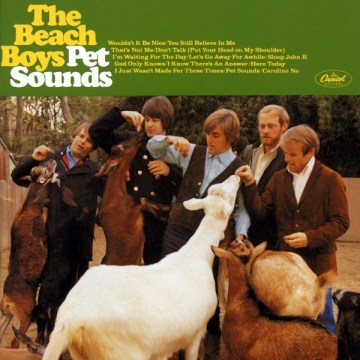
The Microphones: The Glow, Pt. 2 (2001)
Phil: I don’t remember the first time I heard Phil Elvrum’s (now Elverum, see his interview with The Believer) masterpiece of separation and personal discovery, but I can say I have listened to this album several times in several different contexts and it stands apart as one of the finer releases of the Pacific Northwest’s Indie scene.
A friend of mine once told me she thought that every Microphones album sounded like the band practiced for four days straight without sleeping and then recorded. Production on Microphones records is almost always arrestingly simple and childlike, like no one cares if vocal tracks clip and distort or if the hard-panned guitars aren’t really in time. And Phil Elverum’s a smart guy. He could make everything line up just so if he really wanted to, but this approach to the recording process is either calculated naivete or an attention to something else altogether.
What’s important to Phil Elverum? Like any good artist, he seems to be concerned with expression; if this album was tight, in tune and clean, it would be a completely different statement. It would be an album about intentionally working through intense personal muck instead of an album about wandering around in a fog (or glow, if you will) of uncertainty, occasionally tripping over something transcendent but mostly thinking about uncertainty and its aftereffects.
“I Felt My Size” (far from my favorite track on the album) stands, in my mind, as the prime example of most of the elements that make this album exactly what it is. It starts with Elverum’s voice and guitar right up front in the mix with some noise in the very back, sounding very…Northwesty…until the drums come in and they’re just so gd compressed that you can hardly tell what they’re supposed to sound like. And then we get some weird auxiliary noises until the group choir comes in and tells us that Phil is not a planet at all, that he has found his place in the universe and it is certainly not much of one. So you have the sound of someone understanding that the universe does not really much care for them (a theme explored in the following LP Mount Eerie) and it sounds unsettling.
I think this album is unsettling because it is an unsettled album. It’s for grey days and feeling like you don’t have a clue and need to feel like somebody has gone through this all before. And so many have, but few have communicated it as well as Phil Elverum on this here album.
Glenn: I completely agree with you, Phil. This album always sounds just out of earshot — and that is unsettling. There are those albums I know by heart, from first note to last fade. London Calling, Astral Weeks, Kind of Blue, Crooked Rain Crooked Rain, Abbey Road. But, for me, this album is more like The Black Saint and the Sinner Lady, Exile on Main Street, Amnesiac, and Camofleur: each listen is like the first listen, and something new comes to the front. The Glow Pt. 2 is perhaps the album I love best that I know least. There is something distant, almost unknowable about the album — fog, as Phil puts it.
Yet the mystical quality of the album seems steeped in the real world. For example, see “The Moon,” my favorite Microphones song. A glance at the lyrics shows it to be a straightforward narrative. But the childlike production is what makes the song poignant. Only so often do lyrics lines emerge clearly through the haze of guitars: “We walked around and stayed up late….And the wind and the mountaintop….My chest was full….And in its light I saw my two feet on the ground.” The fragments of story are more meaningful than the story itself, because you, the listener, must do the work to make sense of the song.
Phil: I’d be willing to cut “The Mansion”; I think it’s a really good lyrical centerpiece to the fog/glow of the album, but the title track is pretty stinking awesome.
Glenn: I’ve always thought that the song “The Glow, Pt. 2” would sound good arranged for brass quintet. Dig a French horn on that gorgeous vocal melody.
In fact, that’s maybe what we’re getting at in this conversation. This record glows with fog, but underneath it all lie solid melodies and good lyrics. Which is more than you can say about any other Microphones or Mount Eerie release (sorry, Phil; sorry, Phil).
Key tracks:
“I Want Wind To Blow”
“The Glow, Pt. ii”
“The Moon”
“I Felt My Size“

















